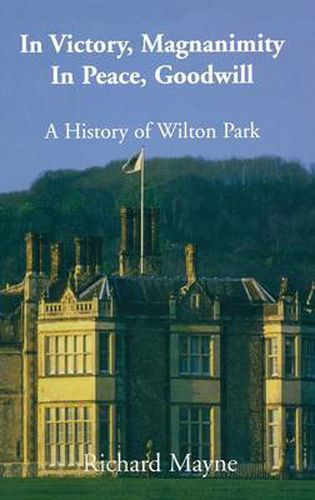Readings Newsletter
Become a Readings Member to make your shopping experience even easier.
Sign in or sign up for free!
You’re not far away from qualifying for FREE standard shipping within Australia
You’ve qualified for FREE standard shipping within Australia
The cart is loading…






Wilton Park is a unique phenomenon: part of the Britih Government but academically independent; well-known among policy makers, but with a low public profile; created to help foster democracy in post-war Germany, but now with global reach; a vehicle for international dialogue, never one for British propaganda. Why did the British Government create such an institution in 1946? What impact did it have? How did it evolve from a training centre for German prisoners of war to today’s international policy forum? In Victory, Magnanimity, in Peace, Goodwill tells the story for the first time. It describes how it was Winston Churchill who proposed Wilton Park’s post-war role. But its founding father was a German: Heinz Koeppler, a historian who had fled from Hitler to Magdalen College, Oxford, and had worked in Britain’s wartime Political Intelligence Department. After the war, he fought as many battles as during it, to resisit Government cuts and to maintain Wilton Park’s academic independence as a centre of frank, searching and off-the-record debate. Koeppler’s legacy is today’s thriving institution.
$9.00 standard shipping within Australia
FREE standard shipping within Australia for orders over $100.00
Express & International shipping calculated at checkout
Wilton Park is a unique phenomenon: part of the Britih Government but academically independent; well-known among policy makers, but with a low public profile; created to help foster democracy in post-war Germany, but now with global reach; a vehicle for international dialogue, never one for British propaganda. Why did the British Government create such an institution in 1946? What impact did it have? How did it evolve from a training centre for German prisoners of war to today’s international policy forum? In Victory, Magnanimity, in Peace, Goodwill tells the story for the first time. It describes how it was Winston Churchill who proposed Wilton Park’s post-war role. But its founding father was a German: Heinz Koeppler, a historian who had fled from Hitler to Magdalen College, Oxford, and had worked in Britain’s wartime Political Intelligence Department. After the war, he fought as many battles as during it, to resisit Government cuts and to maintain Wilton Park’s academic independence as a centre of frank, searching and off-the-record debate. Koeppler’s legacy is today’s thriving institution.